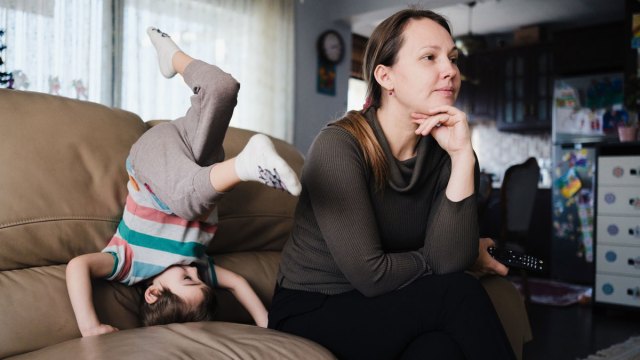Maybe it’s the kid who whines for lunch and then smears crackers on the dog. Maybe it’s that toddler who shrieks like a siren and touches every single surface with their sticky paws. Or maybe it’s that girl who just smacked your daughter, stole her binky, popped it in her mouth, and smirked. You didn’t know two-year-olds could smirk.
You dislike that child.
You feel very guilty.
You don’t want to admit it. People should like kids. As a parent, you believe this, partly because you want everyone to like your kid. But you can’t help it: one of your friends has a kid you can’t stand. You hate it. It’s an ugly little feeling, and you shove it down. You smile through your cringe. You fake a nice-nicey voice.
You would never admit to anyone that you dislike a child, especially your friend’s child. Disliking children is bad, right? It seems especially mean when you can’t stand your friend’s kid. Liking the friend seems to include liking their kids. It’s a transitive property of friendship, right?
Wrong.
It’s okay to dislike other people’s kids, whether or not they belong to your friend. We’re used to our own kids’ obnoxiousness, and we’ll freely admit (at least to ourselves) that they can annoy us. We don’t have to put up with other kids, and their bad behavior comes in new and irritating flavors—even their whines sound worse. They annoy us more. Therefore, we dislike them. This is totally normal.
When my kids were two, other toddlers seemed drippy, germy, and rude. I wanted someone to wipe their faces, scrub their hands, and make them stop hogging Thomas the Tank Engine. Meanwhile, in the corner, my precious, jam-covered baby was probably pulling books off a shelf, smacking his friend, and giggling.
But you still feel guilty. Disliking your friend’s kid seems disloyal. It seems wrong. But it’s still okay. Newsflash: your friend and your friend’s kid are separate human beings. They have different personalities and different behaviors—unless your friend is screaming and stealing your kid’s Mr. Blanky, in which case you should reevaluate your friendship. There is no transitive property of parenthood. Liking an adult doesn’t automatically mean you like their kid.
That dislike doesn’t mean you disapprove of your friend’s parenting, either. Kids can be jerks regardless of parenting skill. Look at your own kids. You’d consider yourself at least a semi-decent parent, and your kids have pulled screaming meltdowns in Target’s grocery section. Your kid has at least one maddening habit, like nose-picking or jam-smearing or shrieking. This is not a sign of poor parenting. It’s a kid thing. Some kids compulsively run in the house; some kids won’t shut up about Pokemon. You can secretly roll your eyes at a kid without secretly rolling your eyes about how they’re being raised.
Note the word “secretly.” Remember: feelings aren’t behavior. You can absolutely despise your friend’s child. But you can’t treat them differently because of it—full stop. You can’t actually roll your eyes; you can’t glare. You can’t gossip about them. You can’t complain about them behind your friend’s back (sorry, but if you value your friendship, you won’t). You can’t say or do anything you wouldn’t do to a child you enjoyed. Ask yourself: would I want a friend to treat my kid this way?
You are, however, allowed to stop that kid from bothering your own. If they hit, hurt, tease, or otherwise disturb your child, you have the right to step in. Unfortunately, that doesn’t include telling off the kid you dislike—as much as you want to. And if your friend’s rugrat is a bad influence on yours, you’ve gone beyond “I don’t like this kid” and into “I need to decide if I want my child to socialize with my friend’s child.”
A bratty toddler’s very different from a six-year-old whose creative cursing might spread like a bad cold. Some kids might annoy you. Some kids might put your child in dangerous or uncomfortable situations. You have to learn the difference—even if their parent is your buddy and you feel super guilty. (Fun times!)
Remember: you don’t have to like every kid on the playground. That includes your BFF’s. Ditch the guilt—you don’t have to love them. You just have to deal with them.











